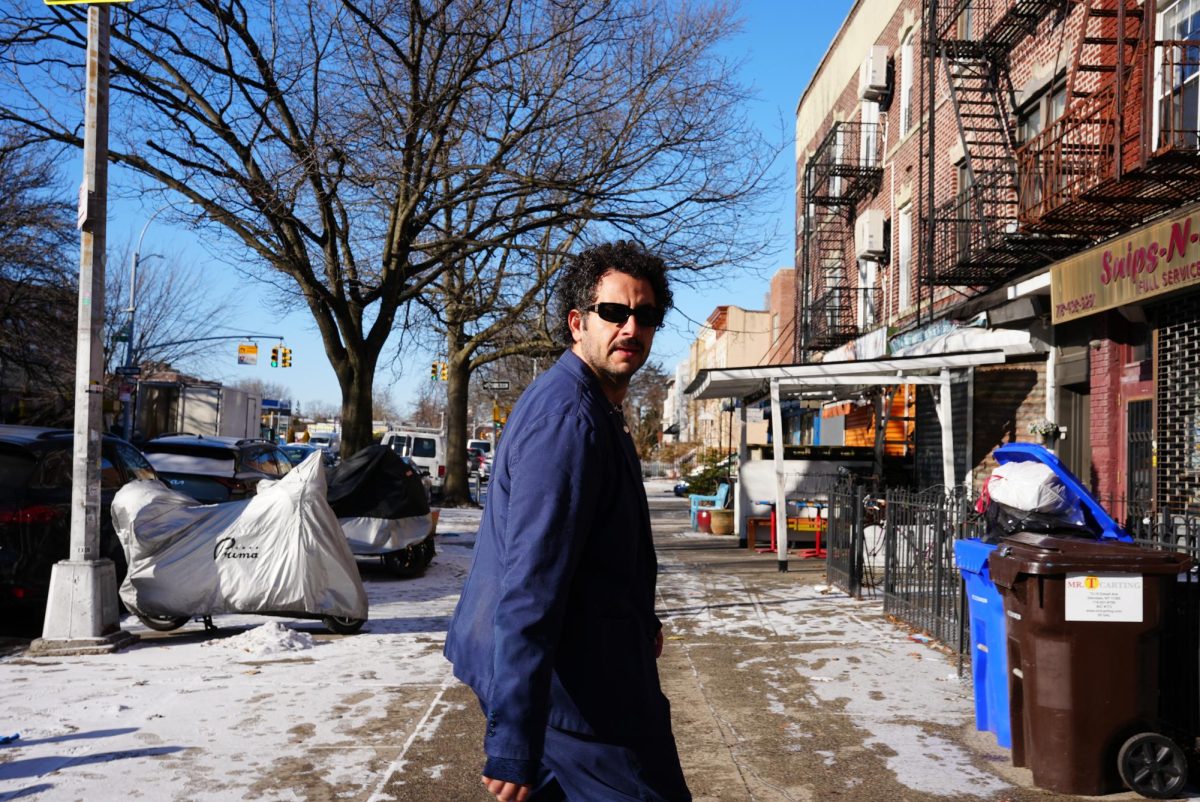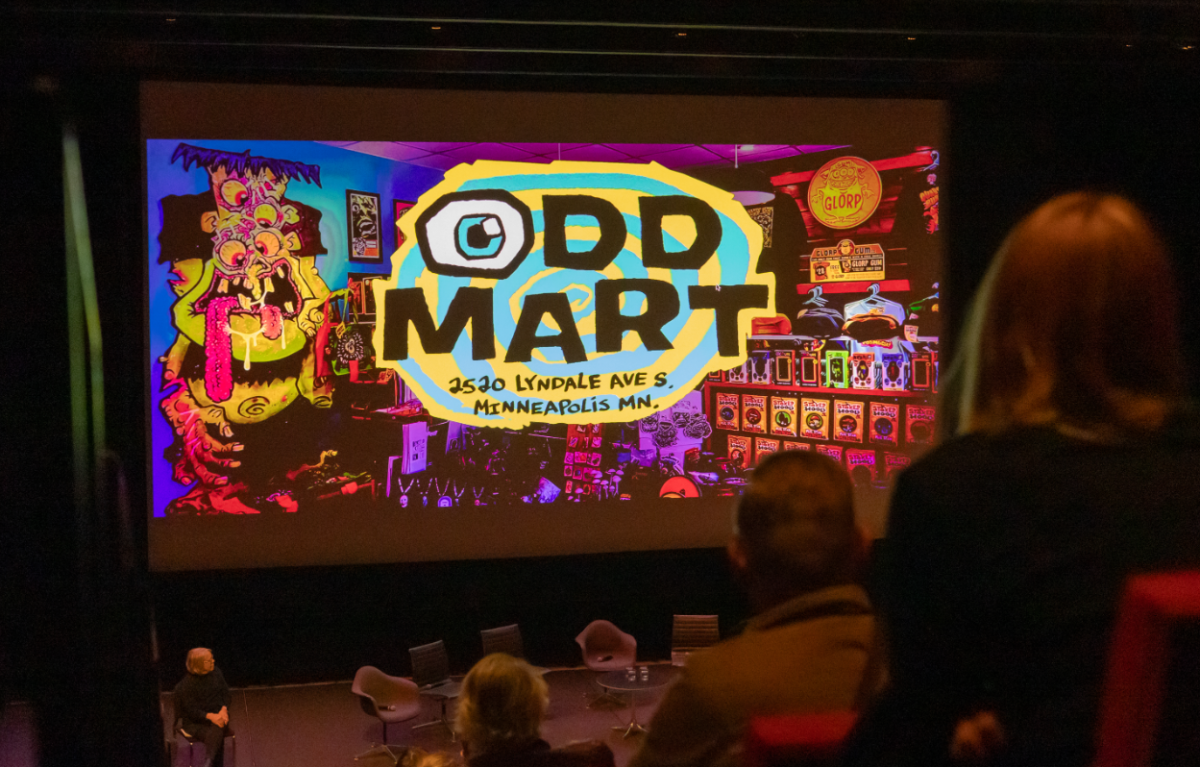What: Sharon Van Etten, Tennis
Where: First Avenue, 701 N. First Avenue, Minneapolis
When: 6:30 p.m., August 4
It’s been exciting to watch Sharon Van Etten grow over the course of her three albums.
Her debut, “Because I Was In Love,” was full of raw, wounded folk music inspired by a bad relationship. “Epic” found Van Etten opening herself up to working with a full band. With this year’s “Tramp,” she has built a network of collaborators from The National, The Walkmen, and Wye Oak. She sounds more confident than ever, and some songs even gave way to full-blown rock catharsis.
We talked to Van Etten as she packed up her van for her upcoming tour with pop duo Tennis.
Have you ever toured with Tennis before?
No, but I’m excited to! I think their songs are really beautiful and it’s always nice to have a band on tour with you, it’s like summer camp.
You two seem to occupy opposite ends of the emotional spectrum.
They’re a married couple, right? They’re a couple; they’re actually together, and they’re in love. I think that would be fun.
Your last two albums were pretty solitary, but with “Tramp,” you began collaborating with a lot of indie heavy-hitters. What was that like?
It was fun, and it helped me let go a lot more than I was used to. I was always nervous of collaborating in the past just because I didn’t know how to — I’m not very good at technical terms and theory and all those things. Aaron [Dessner of The National, who produced the album] helped me learn how to communicate to help people understand what I was looking for.
And it was a nice way to hang out with friends that I hardly get to see because they tour as much as I do. It was nice to see my friends and how they work, especially with my songs. It’s fun to see how people interpret them.
The recording process was pretty transient, right? You were homeless for more than a year.
Yeah, it was a little stop and go. Sometimes I was really flustered, and I felt really displaced, but the studio is the main constant, you know? And that’s what helped me go not so crazy.
I think it also helped the album to be more versatile, just because it wasn’t all in one sitting and I wasn’t stuck in the album it didn’t all have this one particular sound, which I liked. I think that ended up being the strength of it.
You recorded “Epic” in a very short burst, right?
Yeah, I think it was in like a week or two that I recorded and mixed it. I think that helped that album for what it was: very much one moment in time, while this one was kind of a journey for me.
It seems like you really bare your teeth on this record. What was it like to tap into that angrier side?
Aaron really helped me let go and show more emotions than being sad or being down. Because of the stop-and-go we got to take a song that we had only done minimal recording on and sit with it for a little while when I was on tour, and I could bring back what I worked on.
Aaron would bring the songs on tour too, and we would have a back and forth of the room we wanted to construct for every song. The energy of the song and the mood of the song. We had a lot more time to develop it, and he also pushed me, even when it took a darker side of myself, showing that too.
Do you see yourself moving further in that direction? A bigger sound?
I definitely don’t want to just keep making it bigger. I think the most important lesson I took away from “Tramp” was to let go and collaborate with people and trust other people’s intuition because that’s helping me grow as a musician. What I want to focus on for the next record is writing as a band as opposed to just recording after the songs are written.
It seems like your writing process is very personal.
Yeah, I always write alone. Usually when I write it’s because I’m going through something really intense and working it out.
I’m lucky enough to be around an amazing band that understands my writing process, so hopefully it won’t be so solitary in the future.
Your voice is really strong and seems to be at the center of everything you do. Do you think that makes the music around it more flexible?
One thing that Aaron and I talked about with making this record was that he didn’t want to make it a National record. He didn’t want to bury my voice, no matter what kind of production we did on it.
It’s my strength. I’m not a very good guitar player, like, I play a minimum to develop the melodies because the melodies are the most important things to me. Lyrics help me get through hard times but … my vocals are the center. That’s something that I think will stand on future records too because it helps everything else become cathartic around it as well.
You have such deeply personal lyrics, do you ever worry about being too far into your own head that the songs become opaque and lose their appeal?
I guess my concern is always that I write from such a personal space; I don’t necessarily want to appeal to the listener like I’m writing for them, but I want to be able to generalize my personal experiences enough to its easy for other people to relate to without compromising what it is I’m writing about.
I don’t want people to pity me; I want people to relate to me, you know? That’s something I think I’m still working on and I think I’m getting better at. I don’t want people to watch me and think, “Oh god! I’m so sorry!”
You’re well known now for writing about your relationships. Are people you’re involved with ever worried that they’ll end up in your songs?
[laughs] Yeah, I’ve had a boyfriend on and off for the last seven years, and a lot of the songs are about things that we’ve been though. We just have an agreement to not talk about which songs are about him [laughs]. He’s a fan, and he understands the process, and he respects what I do, so that helps me keep going.
I’ve had boyfriends in the past that haven’t been supportive or thought that my songs were too personal, but my boyfriend is really supportive. He knows that writing is my outlet. So it’s never an issue.













